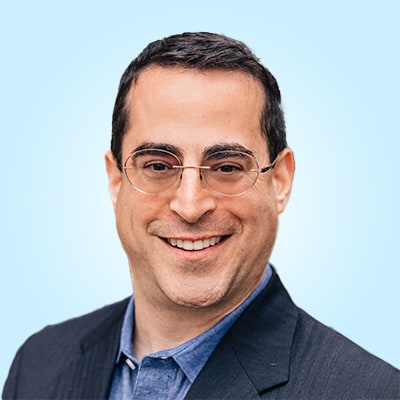Freeze when a client says I have an invention? Mystified by Patent Office procedures? This webinar will cover the basics of patent law, including patentable subject matter, along with the novelty, nonobvious, and utility requirements. Biochemical inventions will be used as examples, as that is the focus of the speaker's practice, but the concepts apply to all scientific disciplines. Afterwards, attendees will be confident discussing the beginnings of the patent process with clients and know when contacting a patent attorney is needed.
- Firm Introduction
- Introduction of Necessities for a Patent
- Patentable subject matter
- Novelty
- Nonobvious
- Useful
- Explanation of Science Examples
- Crisper
- Directed evolution
- Patentable Subject Matter
- What isn't in a machine, process, manufactured product, or new state of matter?
- Judicial exceptions
- Product of nature
- Abstract idea
- Patentable Subject Matter Applied to Scientific Example
- Crisper
- Directed evolution
- Novelty in Patent Law
- Novelty Applied to Scientific Examples
- Crisper
- Directed evolution
- Nonobvious in Patent Law
- Basics
- KSR v. Teleflex
- Nonobvious Applied to Scientific Examples
- Obviousness in biology/chemistry
- Crisper
- Directed evolution
- Usefulness
- Wrap up
- What can a patent attorney do for you or your client
- Importance of involving a patent attorney early
- Questions & Answers (as time permits)
This webinar is divided into section summaries, which you can scan for key points and then dive into the sections that interest you the most.
Please note this AI-generated summary provides a general overview of the webinar but may not capture all details, nuances, or the exact words of the speaker. For complete accuracy, please refer to the original webinar recording.
*CLE credit is only available to Justia Connect Pros. Not a Pro? Upgrade today>>
Status: Approved
Credits: 1.25 General
Earn Credit Until: June 30, 2026
Status: Approved
Credits: 1.50 General
Earn Credit Until: October 28, 2026
Status: Approved
Credits: 1.25 General
Earn Credit Until: February 28, 2026
Status: Approved
Credits: 1.25 General
Difficulty: All Levels
Earn Credit Until: December 31, 2025
Status: Approved
Credits: 1.25 General
Earn Credit Until: September 30, 2026
This presentation is approved for one and a quarter hours of General CLE credit in California, North Carolina, and South Carolina (all levels). This program has been approved by the Board on Continuing Legal Education of the Supreme Court of New Jersey for 1.50 hours of total CLE credit. This course has been approved for Minimum Continuing Legal Education credit by the State Bar of Texas Committee on MCLE in the amount of 1.25 credit hours.
Justia only reports attendance in jurisdictions in which a particular Justia CLE Webinar is officially accredited. Lawyers may need to self-submit their certificates for CLE credit in jurisdictions not listed above.
Note that CLE credit, including partial credit, cannot be earned outside of the relevant accreditation period. To earn credit for a course, a lawyer must watch the entire course within the relevant accreditation period. Lawyers who have viewed a presentation multiple times may not be able to claim credit in their jurisdiction more than once. Justia reserves the right, at its discretion, to grant an attendee partial or no credit, in accordance with viewing duration and other methods of verifying course completion.
At this time, Justia only offers CLE courses officially accredited in certain states. Lawyers may generate a generic attendance certificate to self-submit credit in their own jurisdiction, but Justia does not guarantee that lawyers will receive their desired CLE credit through the self-submission or reciprocity process.

Chambliss, Bahner & Stophel, P.C.
For over a decade, Daniel Cole has guided independent inventors, startups, college professors, industry professionals, and established businesses through the complexities of intellectual property law. As a registered patent attorney with a specialized focus on chemical and biochemical companies, he evaluates patent and trademark eligibility, drafts IP applications, and advocates for clients in both protecting their rights and defending against unjust infringement claims. Read More ›



